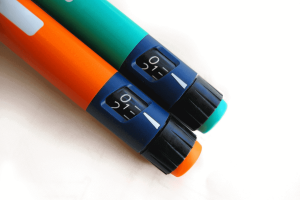
How Caffeine Impacts Your Blood Sugars
If you are someone who needs a caffeine kick-start before heading off to work in the morning, you may want to hold back. Especially if you have type 2 diabetes.
The Science
While coffee and caffeine have been shown to prevent the condition in people who don’t already have it, that morning cup of Joe could have some serious effects on your diabetes.
According to the Mayo Clinic, caffeine can impair insulin reaction. This means it may take more time for your dose of insulin to fully kick in. Caffeine can also increase your body’s resistance to insulin.
In addition, a 2008 Duke University study showed that caffeine may have an impact on your blood glucose levels. The study examined people with type 2 diabetes. One group of participants took 500 mg caffeine–about two coffee cups worth–every day for a week, while the second group stayed caffeine-free. Each person’s blood glucose levels were tested multiple times throughout the week, and it was found that those who drank caffeine had blood sugars around 8 percent higher than those who didn’t take caffeine.
So, what’s the best option for people with diabetes who still want their coffee fix? Try making your order decaf. It’s also best to avoid added creamers, syrups and sweeteners. If you’re really craving some extra flavor, opt for the sugar-free varieties. And make sure you say no-thanks to the mile-high swirl of whipped cream that tops most coffeehouse favorites. It can be so difficult to make good habits according to your diabetes, but it is so important!
Here are some of your best options for that morning coffee run:
- Decaf black coffee
- Caffeine-free herbal tea
- Low-fat smoothie (just make sure to check the sugar content)
- Small decaf latte with skim or soy milk
Summary
If coffee is a necessity to get a kick-start to your day, make sure it isn’t impacting your sugar levels too much. Try to order order decaf and avoid the added creamers, syrups and sweeteners. This way, you can get your coffee fix and keep your sugar levels under control!
Disclaimer Statement: This is for educational purposes only and not intended as medical advice. For individual medical advice, contact your healthcare practitioner.




